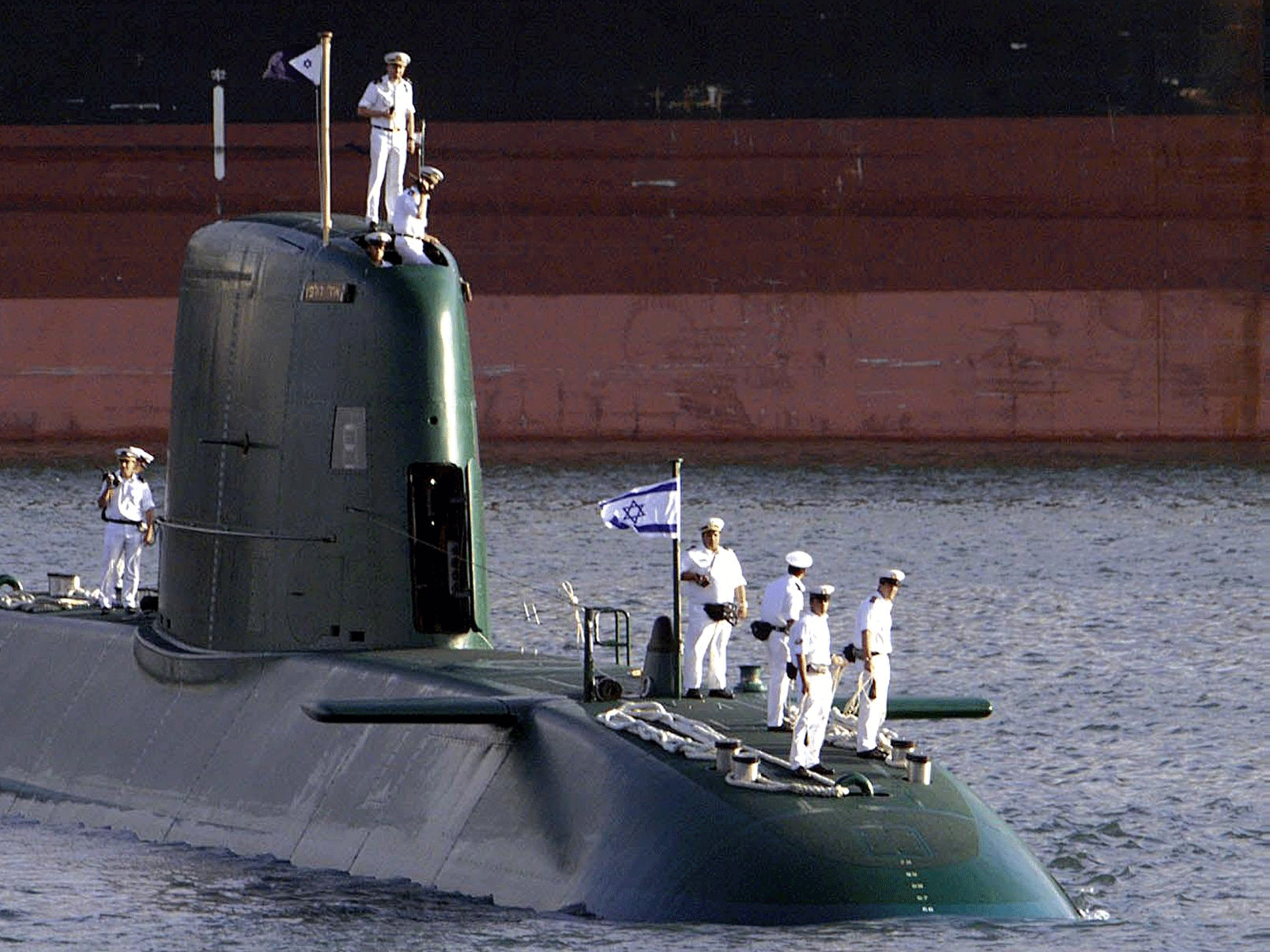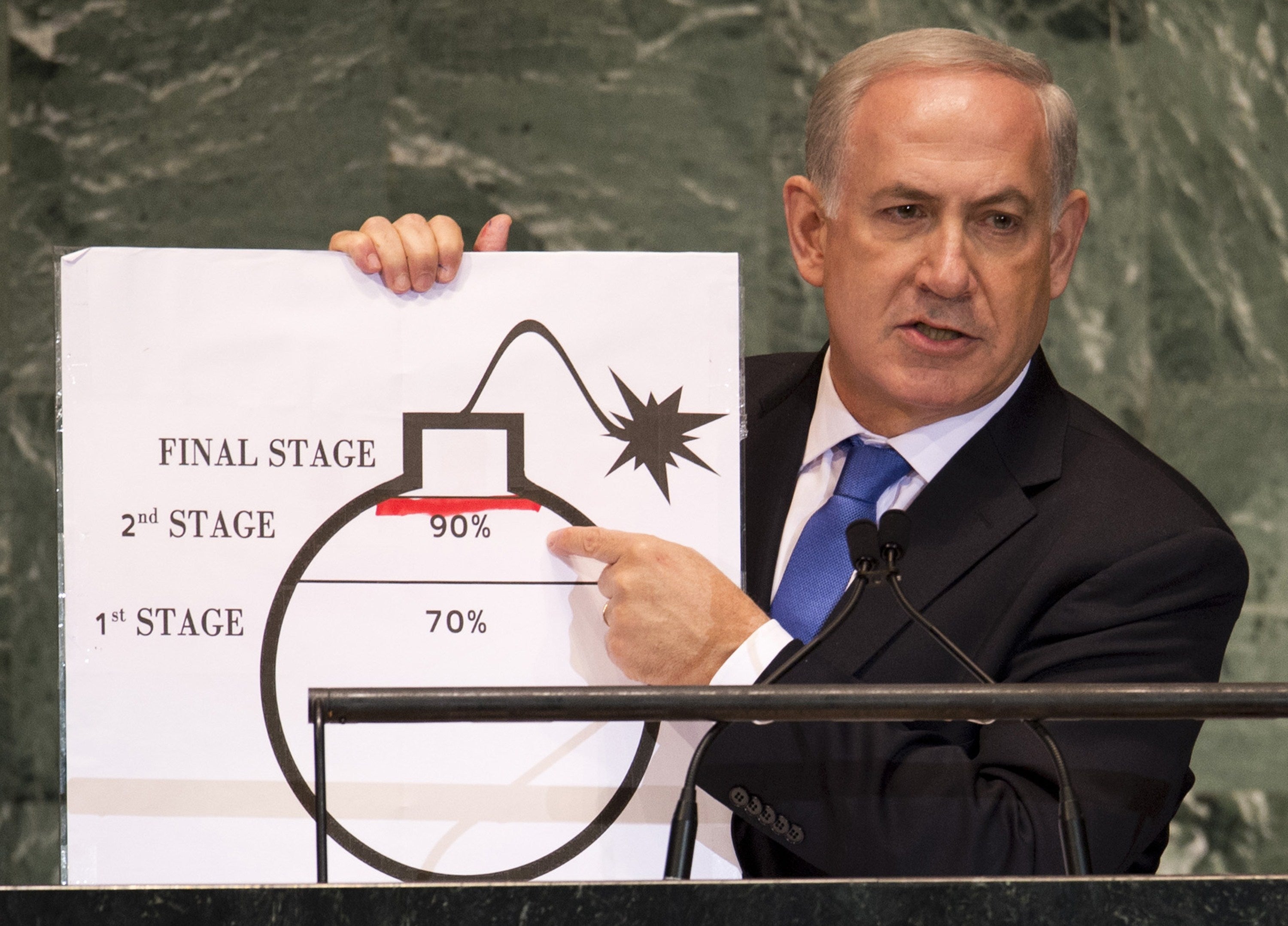Arab League chief Nabil Elaraby calls out 'double standard' of international attitude to Israeli nuclear programme
As the West made a deal that shut down Iran's nuclear ambitions, the anger over Israel's undeclared atomic arsenal surfaced again

Your support helps us to tell the story
From reproductive rights to climate change to Big Tech, The Independent is on the ground when the story is developing. Whether it's investigating the financials of Elon Musk's pro-Trump PAC or producing our latest documentary, 'The A Word', which shines a light on the American women fighting for reproductive rights, we know how important it is to parse out the facts from the messaging.
At such a critical moment in US history, we need reporters on the ground. Your donation allows us to keep sending journalists to speak to both sides of the story.
The Independent is trusted by Americans across the entire political spectrum. And unlike many other quality news outlets, we choose not to lock Americans out of our reporting and analysis with paywalls. We believe quality journalism should be available to everyone, paid for by those who can afford it.
Your support makes all the difference.Following the landmark deal on Iran's nuclear programme, the head of the Arab League has branded the international community's attitude to Israel's nuclear programme a "double standard" and called on them to pressure Israel into declaring its nuclear weapons.
Nabil Elaraby, an Egyptian diplomant and Secretary-General of the Arab League, said he hoped the Iranian agreement would usher in "stability and security" to the region, but added: "It's time for the international community... to stop its policy of double standards and to undertake its responsibilities by pressuring Israel to join the non-proliferation agreement as a non-nuclear state."

While Israel does not 'officially' have nuclear weapons, and has never openly admitted to having an arsenal, it is widely accepted that it has developed them. Its policy of 'nuclear ambiguity' has meant that the Israeli government has, in the past, given mixed signals as to its nuclear capabilities. Estimates as to the size of their atomic arsenal vary between 75 and 400 nuclear warheads.
A UN General Assembly resolution in December last year called for Israel to join the NPT, an international treaty with the end goal of nuclear disarmament, and called for its nuclear reactor at Dimona, the purposes of which are kept under wraps by the government, to be put under the safeguards of the International Atomic Energy Agency (IAEA).
Elaraby's remarks echo the past sentiment of other Arab League countries, which include Iraq, Palestine and Saudi Arabia, who have expressed anger at the lack of international condemnation of Israel's nuclear programme when compared to Iran's nuclear ambitions.
The Iranian nuclear deal, reached at a truly historic summit on 14 July, meant that Iran will have to severely scale back its nuclear ambitions. The conditions include the reduction of its low-enriched uranium stockpile (which can be processed into bomb fuel) by 98 per cent, the introduction of IAEA monitoring at all its sites, and the promise that it will not build any new enrichment facilities for 15 years.
In exchange, strict international sanctions on Iran, which were mostly in place to discourage it from continuing with a nuclear programme, will be lifted. That will allow Iran to drastically increase its oil exports, bringing much more money to the country. The removal of banking and trade sanctions will also open the country up to foreign markets and investors.
Despite the jubilation amongst international governments and on the streets of Iran, the deal was condemned by Israel - Prime Minister Benjamin Netanyahu called the deal a mistake of "historic proportions".
Join our commenting forum
Join thought-provoking conversations, follow other Independent readers and see their replies
Comments